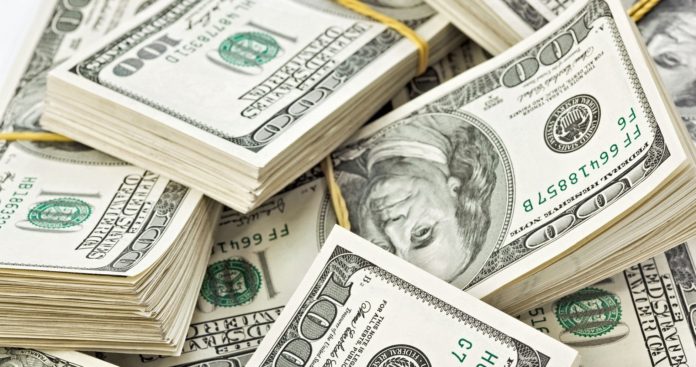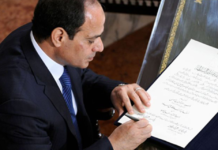Egypt’s foreign reserves surged to a record $44.5 billion at the end of October, providing a strong buffer for the Egyptian pound against sharp declines.
The current average of foreign reserves covers about eight months of Egypt’s commodity imports, which is higher than the global average of about three months of commodity imports and a further demonstration of how far the country has come since it secured a three-year International Monetary Fund loan program in 2016 as part of efforts to ease a severe dollar shortage that had hampered trade and business activity.
Before the January 25 Revolution of 2011, Egypt’s foreign exchange reserves stood at around $36 billion, but then plunged to $19 billion. They began their increase in 2016 following the agreement with the IMF, but shot up in February of this year following the country’s return to the international bond markets with a $4 billion Eurobond issue. Since then, they have been bolstered by the recovery of its tourism sector and an influx of foreign direct investment. In a statement, Christine Lagarde, the managing director of the IMF, said: “The liberalization of the exchange rate regime and the devaluation of the Egyptian pound were a critical steps toward restoring confidence in the economy and eliminating foreign exchange shortages.”
“The economy has been witnessing large amounts of foreign currency coming from diversified sources,” says Tarek Fayed, chairman and CEO of Banque Du Caire. “Portfolio investment and FDI has increased tremendously in the last year, and we have seen a sizeable increase in the amount of exports.”
Monetary reforms are also encouraging Egyptians working abroad to send earnings home, with 2017 remittances from Egyptians working in other countries rising to $26 billion in 2017, the highest level in history. “Worker remittances also increased heavily because previously these inflows did not come through the official channels of the economy. We have now started to see a very strong inflow into the market, and this is reflected in the foreign currency reserves at the central bank,” adds Mr. Fayed.
The Egyptian government sees boosting exports and rationing imports as another key way of further enriching foreign exchange reserves, along with tourism and investments, remittances from Egyptians abroad, and Suez Canal revenues, and the central bank now aims to raise its foreign reserves to $50 billion in the next three years.












